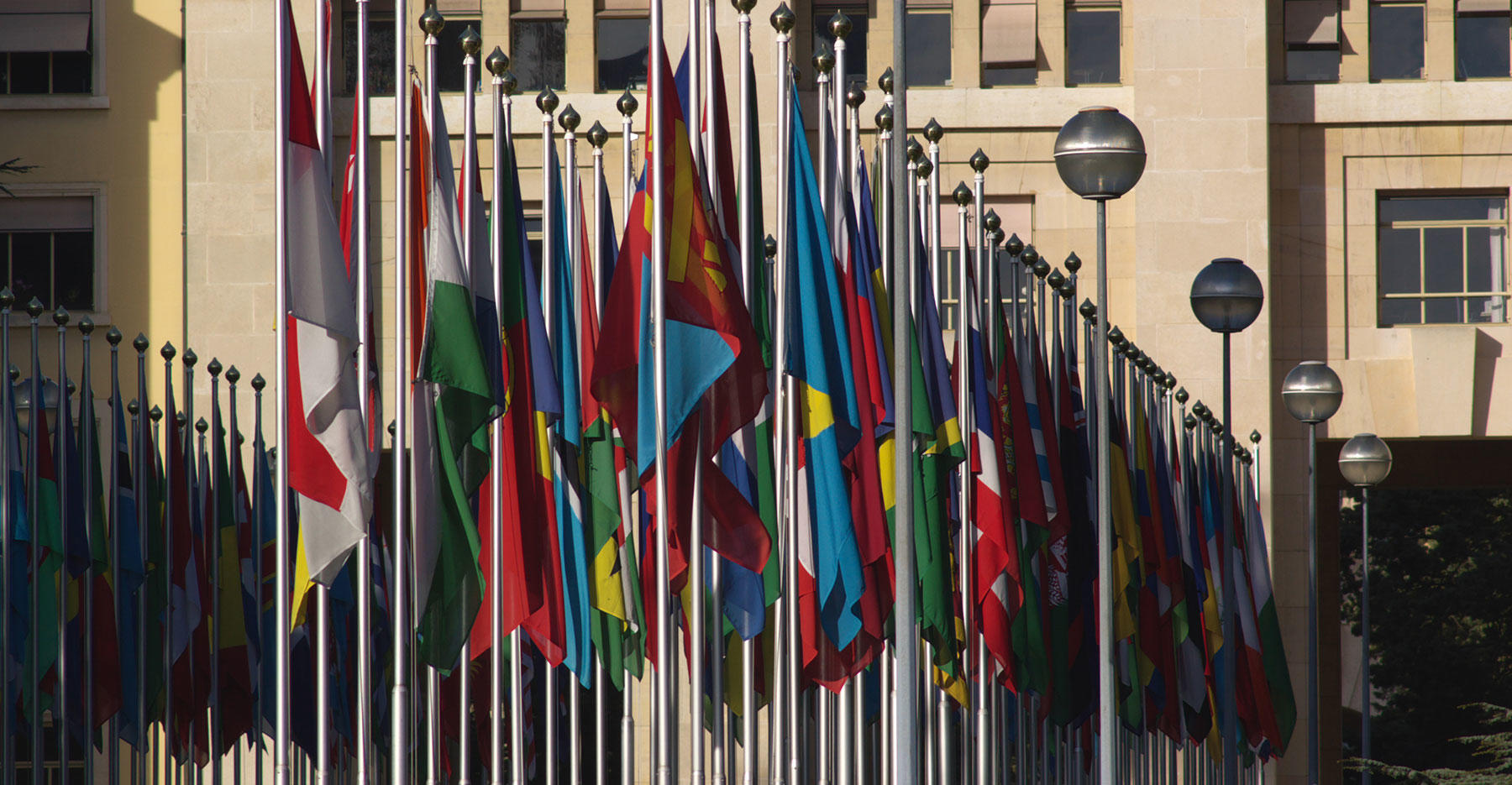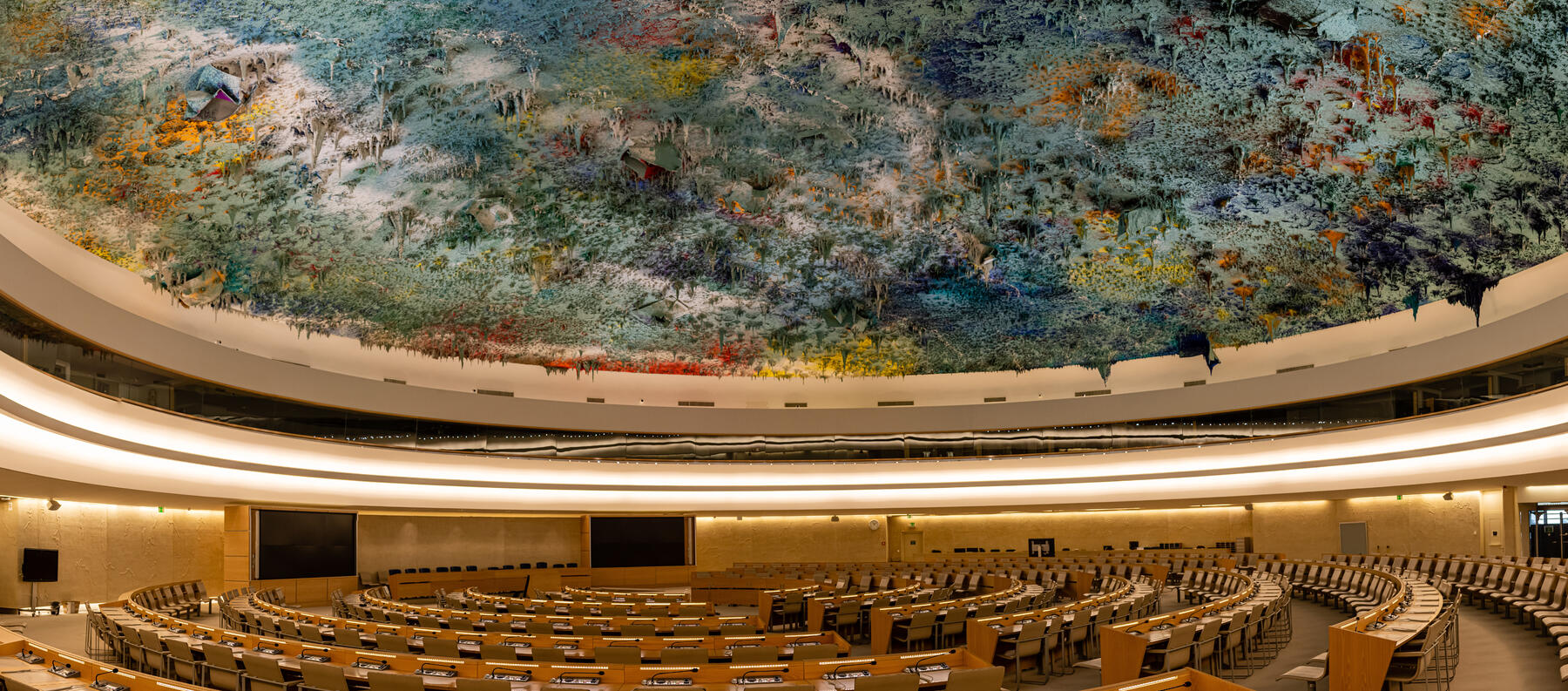49th Session UNHRC: EFSAS Side-event/Webinar - 'Human Rights situation in Afghanistan'
30-03-2022, Amsterdam
While the world has been gripped by the ongoing Russian invasion of Ukraine, on the side-lines of the 49th Session of the UN Human Rights Council in Geneva, the European Foundation for South Asian Studies (EFSAS) organised a very engaging and though-provoking Webinar on ‘Human Rights Situation in Afghanistan’, in order to illuminate the increasingly deteriorating situation there, which has lately been rather spared from the international spot-light.
An all-Afghan panel consisting of a scholar, former diplomat and young innovator discussed how human rights have been affected post-Taliban takeover and what the trajectories are for the future. The event was moderated by Mr. Junaid Qureshi, Director EFSAS, and was joined by a large number of attendees, including human rights activists, NGO representatives, diplomats and researchers.


Mr. Mahmoud Saikal, Adjunct Professor at the University of Canberra, Chair of Kabul Association of Integrity, Former Deputy Foreign Minister of Afghanistan and Ambassador to the United Nations & Australia, initially noted that human rights violations have become commonplace under Taliban rule and that the Taliban has recently unleashed a new wave of restrictions, including the arbitrary arrests and execution of dissidents, arbitrary searches, gender segregation in public spaces, and the systemic denial of female access to mobility, work, and education. Male government employees have been forced to pray, grow a beard, and wear traditional clothes, whilst the Taliban have also banned foreign media outlets and restricted the operations of domestic media outlets. To bolster the ranks of its suicide divisions, the Taliban has started to recruit orphans.
Mr. Saikal highlighted that the Taliban’s transformation of the educational system is likely to make Afghanistan a hotbed of terrorism. He also stressed that the restrictions of the Taliban, despite the Taliban arguing that they are based in Islamic law, have no backing in either the Quran or the Hadith. Instead, the Taliban’s vision for Afghan society stems from the tenets of tribal life and the ideology that Afghan refugees were exposed to in Pakistani madrassas.
Turning towards the humanitarian situation in Afghanistan, Mr. Saikal suggested that 60% of all Afghans are currently in dire need of humanitarian assistance. The international response to the Taliban’s takeover, Mr. Saikal argued, for instance in the case of UNAMA, has been reactive rather than proactive. He also noted that the existing UN architecture, including the General Assembly, the Security Council, and the Human Rights Council, has been incapable of adequately responding to the deteriorating situation in the country. Existing international measures, including the sanctions regime and UNSC Resolution 1373, have never been fully or consistently implemented. Mr. Saikal also highlighted that the UN response did not address the real force behind the existence of the Taliban: Pakistan. Pakistan, he suggested, violates the UN Charter by using the Taliban as a proxy force.
Mr. Saikal concluded that the Taliban’s approach towards the Doha Agreement indicates that the Taliban must be judged based on its behavior rather than its rhetoric. International aid should not allow the Taliban to consolidate its rule in Afghanistan and international actors should focus on supporting anti-Taliban movements through coordination and funding. Ultimately, the capacity of UN organs must be improved in order to address the root cause of Taliban rule and allow UN organs to gain genuine relevance on the ground.


Dr. Bahar Jalali, Visiting Associate Professor of History at Loyola University Maryland, US and founder of the first Gender Studies programme in Afghanistan, emphasized that the Taliban cannot be described as an Afghan movement as the ranks of the Taliban were recruited from Afghans who had fled to Pakistan and who had thus never experienced a traditional Afghan life.
She noted that comments Imran Khan and David Petraeus have made regarding Afghan history were frequently inaccurate and that Afghanistan in fact had a long history of democracy and female emancipation. During the 1960s, Dr. Jalali noted, the Afghan elite was constituted by a comparatively progressive group that promoted the introduction of a progressive constitution in 1964 that was followed by the election of the first female representatives to the Afghan parliament in 1965. Afghanistan’s trajectory changed significantly following the 1978 Saur Revolution, reversing much of the progress that Afghanistan had made in previous decades.
Given Afghanistan’s historical record regarding female empowerment, Dr. Jalali highlighted that the US-sponsored reforms post-2001 did not necessarily reintroduce new social norms but enabled the reaffirmation of values that had been suppressed by the Taliban. That said, Dr. Jalali did note that Afghanistan has been heavily impacted by systematic brain drain following 40 years of conflict. Brain drain and the intervention of foreign actors, she argued, has changed Afghanistan beyond recognition since the late 1970s, in the process also shaping dominant social norms.
Dr. Jalali suggested that in lieu of the international community’s rhetorical commitment to female rights, much of the policy support remained superficial. This superficiality and the desire to truly institutionalize female rights in Afghanistan drove her to create Afghanistan’s first Gender Studies program. This pronounced role in the struggle for female rights also saw Dr. Jalali being targeted by the Taliban.
Dr. Jalali criticized the international response to the Taliban takeover of Afghanistan in August 2021, highlighting that the group’s inclusion in international forums practically normalized the Taliban rule of Afghanistan. The Doha Agreement, which she described as a surrender rather than a peace agreement that sidelined the republican government, legitimized the Taliban, thus emboldening it further. Although formal recognition for the Taliban is still lacking, the international response to the regime treats the Taliban not just as the de facto but also the de jure government. The international response, she proposed, should focus on empowering civil society and especially female rights organizations that oppose Taliban rule, in the process specifically emphasizing the role of grassroots movements. Furthermore, the international community should work towards the establishment of mechanisms that provide humanitarian assistance to Afghanistan without boosting Taliban rule. While the Taliban has not changed, Dr. Jalali concluded, the international community’s response to it has.
The last speaker was Ms. Sara Wahedi, CEO and Founder of Ehtesab, Afghanistan's first civic technology startup. Earlier this year, she was named one of TIME Magazine's 'Next Generation Leaders', BBC's '100 Women of 2022', and is a 2022 semi-finalist for MIT Technology Review's 'Innovators under 35' list, for her work in democratizing access to information for Afghans. Ms. Wahedi deliberated upon the objectives of her company and explained how her mobile app, Ehtesab, crowd-sources verified reports of bombings, shootings, roadblocks, and city-service issues - giving residents of Kabul clarity in moments of chaos.
Ms. Wahedi echoed the opinions of the previous speakers and argued that the humanitarian situation in Afghanistan has become extremely dire with the extrajudicial killings and arbitrary detentions of journalists, human rights activists and individuals who oppose the Taliban regime. In addition, starvation and child labor are on the rise, while a liquidity crisis is crippling Afghan economy. She further stated that with the presence of Islamic State Khorasan Province the status quo has deteriorated even more.
Ms. Wahedi concluded her speech by emphasizing the importance of protecting and supporting responsible journalism - journalism that takes time and relies on a variety of sources - particularly at a time when people are overwhelmed, politicization is at play, and fake news and misinformation are proliferating.

The event was followed by a very vibrant and enlightening Q&A session during which the audience and speakers exchanged opinions on various topics. For instance, on the question, ‘How is Pakistan’s foreign policy towards the Taliban going to develop in the coming months given the Taliban’s support for the TTP?’, Mr. Saikal argued that the equation between Pakistan and the Taliban has changed since the latter came to power, as Pakistan’s intelligence agency – Inter-Services Intelligence (ISI) would like to keep them subservient in order to control them. As a result, Pakistan is likely to ensure that the international community does not recognize the extremist group and encourage international NGOs from Afghanistan to set up offices in Pakistan. When it comes to how the UN would deal with the Taliban given that half of their so-proclaimed cabinet are on UN sanctions lists, Mr. Saikal explained that the international community needs to adopt more critical stance and read between the lines, since while Sirajuddin Haqqani got exempted to travel to Oslo under the pretext of peace talks, he was simply working towards the Taliban’s mission to get recognized. Thus, as it appears, the UN sanctions system has been severely politicized, necessitating a re-evaluation.
Dr. Jalali also discussed the normalization of the Taliban in the eyes of the international community and the latter’s defeatist attitude, showcasing the West’s incompetence and lack of accountability. Moreover, the root cause of the problem which according to her was Pakistan, remains a major non-NATO ally and thus too important for the US to get sanctioned for its role in nurturing and supporting the Taliban.
Unfortunately, as Mr. Saikal concluded, Afghanistan will become a breeding ground for terrorism to China, South Asia, Middle East, Central Asia, Europe, Australia and the Americas, yet concerned parties, including India, where the gravity of the problem will play out because of Pakistan’s strategic depth policy, still seemed unalarmed.
For videos of the Side Event/Webinar - Click here




